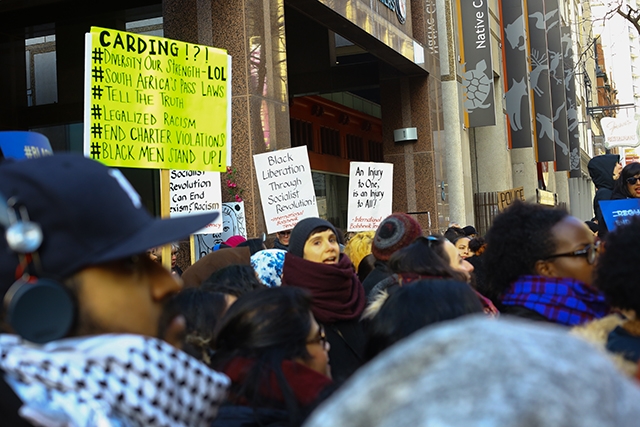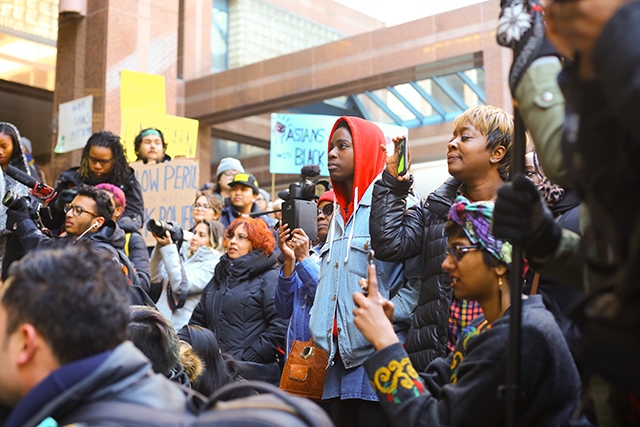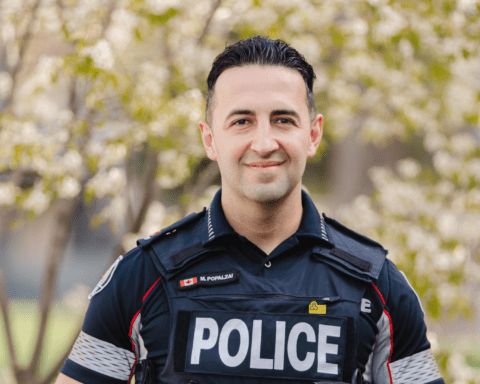“I don’t hang out with my friends anymore. They’re past friends now, and I have moved on.”
This is how 15-year-old Gevonte Largie of Toronto, Ont. feels right now as he enjoys his new found freedom away from the stereotypical troubles usually confronting at-risk Black boys his age.
He is able to move on with the help of a civic intervention program called Ounce of Prevention (OZ), funded by Public Safety Canada.
“The program aims to assist Black and racialised youth and their families in Toronto navigate their way through the courts, encounters with police, and correctional institution,” says OZ program manager Ken Williams.
Useful life lessons
Largie, who was recently charged with robbery and larceny, said the OZ program has taught him useful lessons in life.
“I am making great decisions for myself right now because of the OZ program. I want to finish high school and choose a career [path] for myself,” he says, adding that he doesn’t have time for the kind of peer pressure which led to his arrest.
The program was introduced early this year and has the support of community leaders, and the police.
“The OZ project gives Black youth a culturally grounded, holistic approach to navigating Black identity issues in Canadian society,” says Ken Williams, OZ program manager.
Williams adds that the program agenda is affiliated with the Delta Family Resource Centre. “We are simply responding to the overrepresentation of Black and racialised youth in the criminal justice system,” he says.
Delta Family Resource Centre is a grassroots non-profit agency serving priority neighbourhoods in Northwest Toronto.
With a staff of 12 counsellors, the OZ program continues to offer services even during the pandemic. Services include:
- assisting youth and their families who are seeking information on relevant services available in the community;
- free counselling for youth and their families;
- assisting with stress;
- helping with support letters for court-related matters;
- representation at video court proceedings;
- and assisting those who are being released from prison.
“This program has shown that it’s absolutely vital to have Black-led and Black-serving organisations in Toronto and, indeed, Canada. It’s absolutely necessary to invest in Black communities because too often they’re barraged by socio-economic barriers across the board,” says Kemi Jacobs, executive director of Delta Family Resource Centre.

“We show Black youths how to talk to the police,” she says, adding that one of the reasons young Black people are having trouble with law enforcement is a stereotypical perception of them as hoodlums.
“Often times, Black people have to [act] proper before the police with no chance for errors. So we have to coach them and their families on how to approach the police,” Jacobs says. “We realise the racist bias by law enforcement, and it’s important to know how to navigate the entire criminal justice [system].”
“I don’t know what they told my son but I can tell you that whatever they told him is working,” says Gevenote’s mother Amalia Largie of the OZ initiative. “Geveonte is a nice and sensitive kid, and I can see the change in him because of this program.
“Gevonte could not wait for his time on Zoom with counsellors of the program. I saw the desire in him to make a change,” Amalia says.
“It’s true what my mom said. The counsellors from OZ understood me right away. They knew where I was coming from, and it was easy to talk to them about how Canada is as a society and what society expects of me. I liked that,” Gevonte says.
For youth and their families
Asked what was different about the way OZ coordinators interacted with him compared to what his own mother always tried to instil in him, Gevonte simply says, “It’s different.”
“I realise he was moving with the wrong crowd, and that’s the reason for his brushes with the law. He wouldn’t snitch and was trying to be the fall guy for his friends’ mistakes,” Amalia says. “I will admit I don’t know the laws and how to navigate certain sophisticated things in the community the way OZ people do, so that may be the difference in the way Gevonte received their message.”
“The OZ program is about youngsters and their families. Their families are never left out in the search for answers to solutions,” explains Jacobs.
To be eligible for OZ, clients must be a Toronto resident and racialised youth trying to go through the criminal justice system. Courts and law enforcement serve as major sources for OZ clients but word of mouth too has also been effective. “The Police are aware of our program,” says Williams.
OZ currently has five partner agencies: Delta Family Resource Centre, For Youth Initiative, Somali Woman and Children, Think 2wice, and Urban Rez Solutions.
Peter Uduehi is a journalist and currently publisher and editor of African World News in Toronto. Versed in African and American politics, he has spent most of his adult years in the USA where he studied journalism and later worked as reporter and news editor for several US media outlets before emigrating to Canada 10 years ago.





